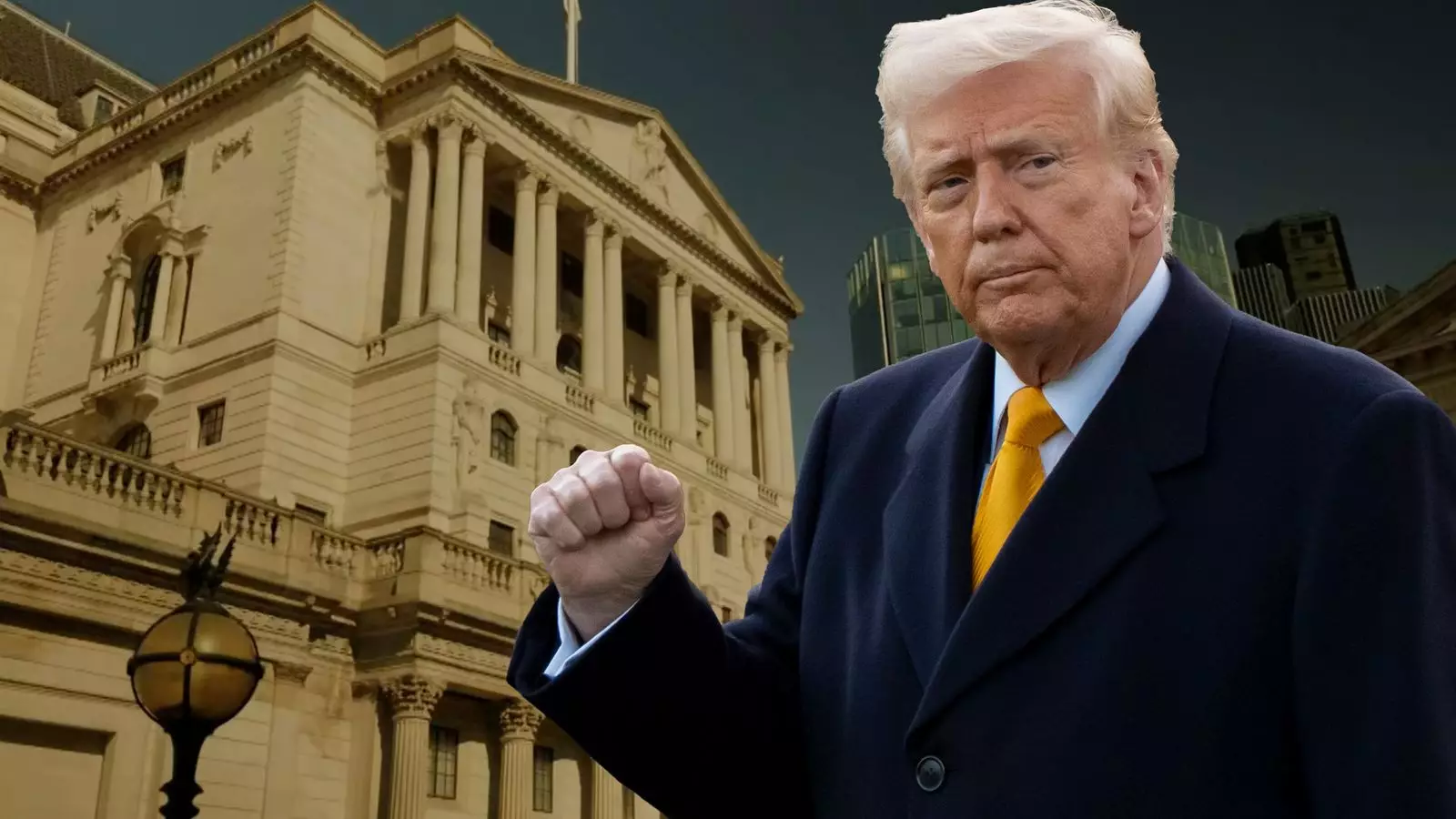As we grapple with Donald Trump’s tumultuous trade policies, the ramifications are rippling across global financial markets, and the Bank of England (BoE) finds itself in the crosshairs. Recent financial analyses reveal a 100% probability of an interest rate cut next month, intriguing market watchers and economic strategists alike. The critical link here is how the tariffs imposed by Trump’s administration appear to overshadow the UK’s economic optimism with a looming threat—disinflation.
The implications of Trump’s trade war aren’t merely abstract concepts in financial discussions; they represent a stark reality for businesses and consumers alike. Megan Greene, a prominent figure on the BoE’s rate-setting committee, suggests that instead of elevating inflation, the US tariffs could inadvertently contribute to a decrease in UK inflation rates. The logic is compelling: by not retaliating with reciprocal tariffs, the UK has positioned itself to be a haven for cheaper goods, particularly from Asia and Europe. Yet, amidst this potential advantage lies a chaotic uncertainty—a hallmark of the Trump era.
A Currency Under Pressure
The GBP/USD exchange rate has seen recent fluctuations that could play a fascinating role in this narrative. Greene’s observations highlight a crucial point: the rising pound might ease inflationary pressures temporarily, but it doesn’t absolve the UK from experiencing the longer-term consequences of global economic upheaval. This burgeoning strength of the pound could initially appear like a silver lining; however, it may signal deeper roots of complacency within the UK economy, risking overvaluation and possible painful corrections.
It’s disconcerting and predictable: rising energy prices and tax hikes are imposing pressures on consumers and businesses alike, and yet, the Bank anticipates a rise in inflation later this year. This paradox—the expectation of inflation amid disinflationary pressures—places the BoE in a precarious position. Policymakers find themselves reluctant to make decisive moves, fearing that an interest rate cut might do more harm than good, feeding into inflationary fears rather than alleviating them.
The Looming Economic Crossroad
The global economic landscape is characterized by profound uncertainty, particularly for institutions like the Bank of England. While financial markets speculate about potential cuts to interest rates, they also consider the dire consequences of an ineffectual response to the challenges presented by rising inflation. This juggling act of managing price stability and fostering economic growth is made all the more difficult by external pressures—namely, the unpredictable nature of global trade as dictated by U.S. policy.
Notably, the European Central Bank (ECB) has adopted a more aggressive stance in cutting rates, which reflects the binding constraints on the Eurozone’s economy. With the collective European economy appearing strained, it’s striking how the BoE, while intertwined with its continental peers, seems tethered by the fallout from the Trump administration’s volatile policies.
The Federal Reserve, meanwhile, finds itself in a similar conundrum, facing domestic pressures while simultaneously wrestling with the externalities of Trump’s tariffs. The president’s frustration aimed at the Fed and its chair, Jay Powell, is illustrative of a volatile political landscape—one that threatens to disrupt economic strategies and efforts.
Negotiation or Collision?
As the U.K.’s Chancellor Rachel Reeves travels to Washington in search of a trade agreement, it becomes clear that the stakes are high. Without a resolution, continued tariffs could stifle economic growth, particularly in troubled times where the fragility of global trade is under a spotlight. Any potential rate cut from the Bank of England must be weighed against a backdrop of these urgent economic conversations.
Ultimately, the prospect of a rate cut may seem alluring as a short-term fix to stimulate growth amidst external turmoil. Yet, with the potential for inflation to rear its head when least expected, policymakers have to tread cautiously. An ounce of caution, amidst the whirlwind of trade wars and market instability, may well be worth its weight in sound monetary policy. The transformative decisions that lie ahead for the Bank of England will resonate not only within the UK’s borders but across the international economic fabric. Navigating these treacherous waters will require foresight, resilience, and a deft understanding of the complex interplay of forces involved.

Leave a Reply